Mafia in American Cinema
The cultural legacy of mafia in American cinema will never be whacked.
In 1973, a showdown occurred between what is considered two of the best films in cinematic history at the Oscars. Ultimately though, Francis Ford Coppola’s The Godfather walked away with the Best Picture prize, beating out Cabaret and Liza Minnelli’s signature acting role. If you know anything about how the Oscars works, the Hollywood elite, and the stories they like, the win for The Godfather is not that surprising. That is to say, the story that appeals the most to the American consciousness will always walk home with the most awards or in the very least, Best Picture (here’s looking at you Argo).
Then again, films about the mafia have always held a special place in popular cinema. Every few years, a great one comes along and makes filmgoers feel validated in their preference for family, honor, and respect above all else. Oh, and money. It will always be about the money. The glorification of the gangster life, rather, organized crime through popular mafia film suggests that as a culture, Americans are thrilled by the secrecy and codes of ethics of the mafia, but ultimately desire for crime to exist only as a means to an end.
Mafia Films Stranglehold on Cinema Culture
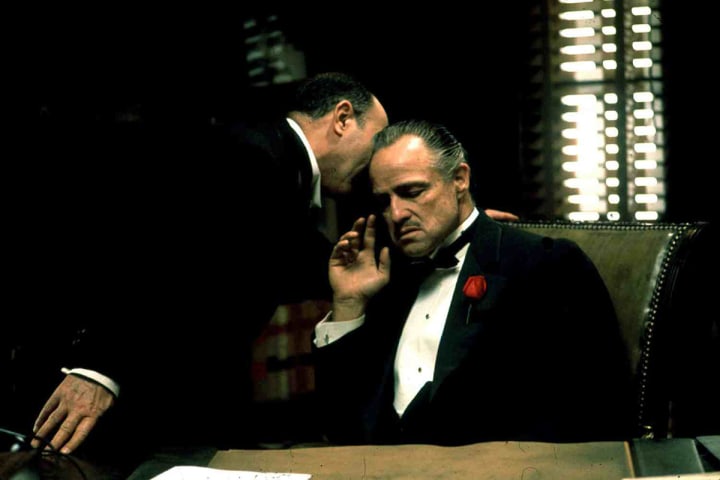
Image via Telegraph
In short, mafia films represent a culture that finds criminals acceptable only if there is some larger moral reasoning behind it. Though greed might appear to complicate this, it should be noted that the pursuit of money, wealth, and financial security is something that is directly tied to the American dream–a concept that is still very present in American popular consciousness. Given its place among top films of all time, it’s impossible to write an article about mafia films without discussing Coppola’s The Godfather and his subsequent sequels. As mentioned before, The Godfather took home the Oscar for Best Picture, and also won Oscars for Best Adapted Screenplay, and Best Actor for Marlon Brando as the titular character.
Aside from the obvious high production value, solid directing, great writing, and great acting, Coppola’s masterpiece is appealing because of the way it offers mafia members as counterculture figures. Or, as Anthony Julian Tamburri explains, “Let us not reject the possibility of the [Mafioso] figure being, for some, transformed into a countercultural icon, one who, while initially part of the downtrodden, can eventually rise to ‘beat the system,’ even though the system is a so-called legitimate social structure.”
The example of this situation is the line from Amerigo Bonasera explaining to Vito the way in which the system failed his daughter. The implication is that the justice system sometimes fails the innocent, leaving them with the task of working outside in order to achieve their goals. This makes Vito and the rest of mafia appear justified in their criminal activities. As a result of this, The Godfather appeals to every downtrodden American that may have done something illegal or unsavory to get closer to their dreams. The Godfather appeals to the American subconscious desire to make the system of the country work for you.
American Exceptionalism Through Criminal Enterprise

Image via IFC Center
Moreover, it appeals to the concept of individual responsibility for one’s prosperity. A key part of the American identity is individualism. The theme of individualism in the scope of the American dream becomes more complex outside of Coppola’s world of the Corleone family. Specifically, when you include some of the later, more morally ambiguous mafia films like Scarface and Martin Scorsese’s Italian Gangsters, it becomes clear that as much as the mafia may be working toward certain American values, there are elements of crime that cannot be explained by anything more than the love of money.
It’s almost impossible to discuss the history of American mafia films without talking about popular Little Italy raised film director Martin Scorsese. Scorsese’s first mafia film, Mean Streets, came right after Coppola’s Godfather and arguably spun the genre on its head just as the genre was being formed. Mean Streets still involves individualism, family, and honor, but there are also dire consequences for even the seemingly good-hearted mafia members. Charlie, played by Harvey Keitel, despite trying to be a relatively upstanding mafia man, still manages to get shot thanks to his greedy gambling younger brother Johnny, played by a young Robert De Niro. Most importantly however, there is the complicated situation in which the laws by which the mafia operate (family, loyalty, honor) come into conflict with each other.
In Mean Streets, Charlie’s father, Giovanni (who is also the local don), tells him to keep his distance from Johnny because “honorable men go with honorable men.” But because he must also look after him as a family member, it’s hard to sustain both concepts equally. Add in Johnny’s troublemaking, and Mean Streets puts audiences in the complex situation of identifying with a mafia protagonist, but also having to contend with the cognitive dissonance of knowing immoral acts come with that once thought to be controllable mafia lifestyle.
Demystifying the Myth of the Mafia
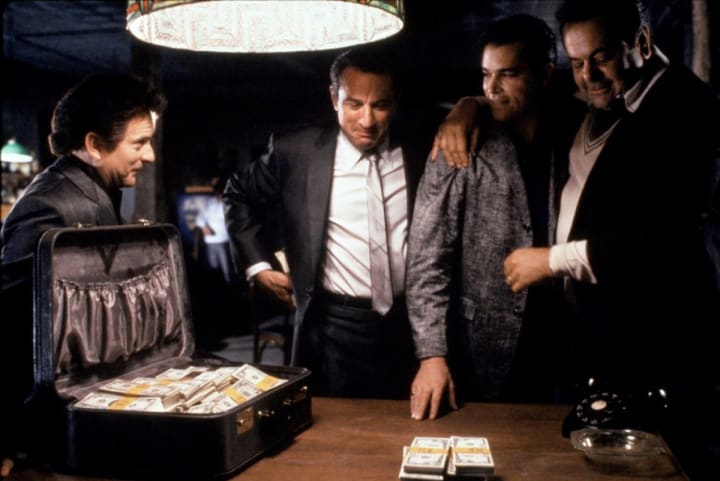
Image via Indie Wire
In fact, Scorsese’s following mafia movies continued to demystify the seemingly perfectly moral method of seizing the American dream by working outside of the system if necessary. This especially was highlighted in Goodfellas, which was his first mafia film to earn him two Oscar nominations. Based on the very first line in the film from Henry Hill, Goodfellas implies that the seeming glory from being a gangster and part of the mafia can and will lead to the exact opposite of what you believe will happen. This is demonstrated by the very tragic endings for all of the Goodfellas, with Tommy winding up dead and Henry and Jimmy being arrested and pretty much losing their large amounts of wealth.
Though Scorsese continued to make mafia films after the success of Goodfellas, it wasn’t until 2006’s The Departed that he finally won an Oscar for his efforts. The main difference with The Departed, however, is that Scorsese shifted his focus to the Boston Irish-American mobster culture as opposed to Italian-American mafia. But the implications are largely the same, which is that the glory, honor, and loyalty praise that Coppola’s Godfather films show, is really an outlier of the everyday outcomes for the mafia. In short, Scorsese highlights the ways in which the mafia can be much more complicated than the rules from the Corleone family.
Mafia Moves to Television
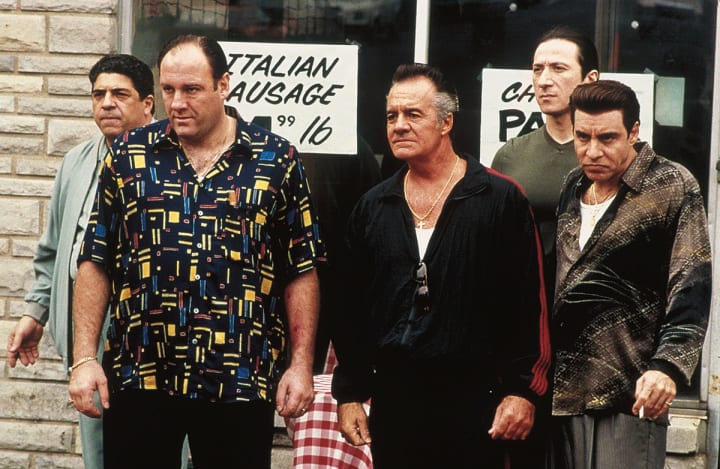
Image via Independent
Perhaps the most encompassing look at the mafia since Coppola’s iconic Godfather trilogy is HBO’s critically acclaimed TV series The Sopranos. Given the much freer format of subscription TV, The Sopranos was already poised to address more specific incidents related to the experience of the mafia life. The structure of the series, following a mafia boss as he talks to a therapist and experiences everyday life in the suburbs while also being allegedly a cold-blooded killer, also made the series able to portray the complexity of men in the mafia. As for what happens to Tony Soprano (played by James Gandolfini), his main character arc is about his sometimes failed attempts to balance being the patriarch of the Soprano household while also rising in the ranks of the DiMeo crime family.
The Legacy of the Sopranos
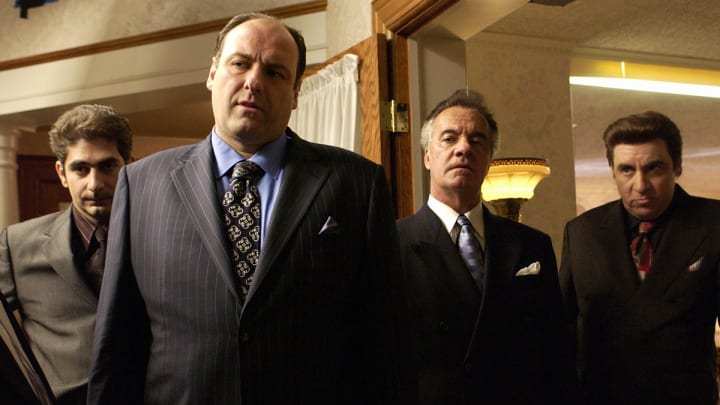
Image via Telegraph
After a much debated and contested season six finale, Tony Soprano lives on mainly as perhaps the most deeply explored mafia boss character in modern entertainment. Like his predecessors Coppola and Scorsese, creator David Chase is always interested in the moral code of the mafia and how it plays out when that code is broken. The brilliant element of The Sopranos is how Tony’s life outside of the mafia gets mixed in. In film, this is usually addressed through the love interests of the male mafia members. In The Sopranos, there is, of course, Tony’s disillusionment with the women in his life (including his therapist), but there is also his responsibility as a father.
This is best exemplified when you consider Tony’s consequences (read as death if you believe the theory that he died at the end of the final season) for assaulting a Lupertazzi soldier for harassing his daughter, Meadow. It would appear that Tony was once again doing the noble mafia ideal of protecting family, but the consequence for this (unlike say for Michael in The Godfather who protects his family and wins) is facing the end. From the gritty, yet fantastic, world of Coppola’s Corleones, to the current complex and cognitively dissonant mob bosses of Scorsese, one thing that remains true is the continued interest (and somewhat obsession) with organized crime. Whether it’s because of the made-to-work American dream, or the complex consequences of moral corruption, mafia media continues to offer entertainment that audiences can’t refuse.
About the Creator
Tara Edwards
New York based freelance writer and story master at the 8-Player Pictures film company. You can find her blogging about anime, video games, and life philosophies on findtaraedwards.wordpress.com or tweet her @findtaraedwards.


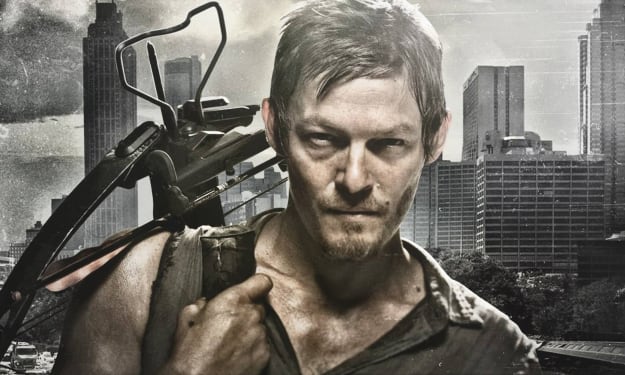



Comments
There are no comments for this story
Be the first to respond and start the conversation.